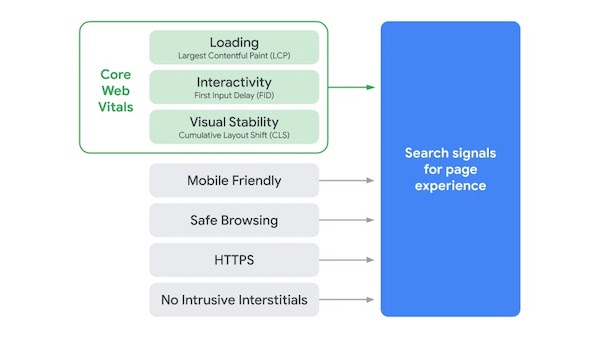In June 2020 Google announced that the Google Page Experience will become the ranking factor. Now it is also clear that page operators should include it in their search engine optimization from May 2021. So let’s take a closer look at the page experience.
The Google Page Experience evaluates the user experience of websites. Google had already announced in June 2020 that it would include the new factor in order to improve search engine rankings.
However, the company did not give a concrete date. And Google also kept the changes to page operators and search engine optimizers to itself for the time being.
That is changing now. The search engine has announced in a blog entry that the Google Page Experience will be included in the search engine ranking from May 2021 and has given further details.
Google Page Experience: The search engine evaluates user-friendliness
According to this, the page experience evaluates the usability of a page. Thus, websites with a better user experience also achieve higher ranking positions. This also means that websites that do not participate in Google’s AMP program can still achieve very good rankings.
Operators do not necessarily have to make sure that their site is usable on the go. However, Google points out that AMP websites do very well in page rankings.
And regardless of all ranking factors, page operators should also make sure that their site is well structured for mobile use. Many people use their smartphone or tablet to surf the Internet.
A website without AMP then appears dubious. There is a risk that users will quickly leave it again – and that is something that site operators do not want.
The Google Core Web Vitals become ranking factors
The page experience is based on the so-called Core Web Vitals. In an older blog entry, Google’s performance expert Ilya Grigorik explains exactly how the rating system works.
The Core Web Vitals consist of a total of three individual metrics, each of which measures the rendering time – the time between user activity and browser reaction – and the visual stability of a website.
But the Google Page Experience evaluates a total of seven factors. In addition to the Core Web Vitals, these include, as already mentioned, mobility, the security of the website, whether the connection to the website is protected via HTTPS, and whether annoying pop-ups obscure the actual page content.

The Core Web Vitals are decisive for the evaluation, but the other four factors complement them and should not be ignored. All seven factors together result in the placement of a website in Google search results.
“Any site that meets Google’s news content guidelines is eligible to participate, and we will give preference to the site that provides the best user experience, whether it uses AMP or any other web technology,” Google writes in the blog post.
What can site operators do to improve the Google Page Experience?
What can operators do to optimize their website for the page experience?
The search engine wants to play out the most relevant content. This includes making pages as user-friendly as possible – and that’s something operators should now tackle.
According to Google, AMP is one of the “easiest and most cost-effective ways” to achieve a very good page experience.
According to Google, this also includes the preview in the search results. Operators should make them as exciting and informative as possible so that users can quickly get an idea of whether a click on the website is worthwhile.
For example, you can also use emojis and special characters for the display. But be careful: Google plays them out less and less often these days. The SEO specialists at Sistrix can give you an overview of which characters will increase your click-through rate most effectively.
Google also provides tools for website operators
According to Google, operators can, for example, also use the Core-Web-Vitals report in the Search Console as well as Page Speed Insights or the open source tool Lighthouse to optimize their own site.
And those who want to improve the mobile version of their site can use the new AMP Page Experience Guide to make content as user-friendly as possible.
Google also wants to conduct a test in which search results with particularly good page experience are visually highlighted. If this test is successful, the feature will also be available from May 2021 to provide operators and users with more information about the results.










